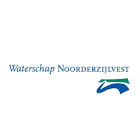Waterschap Noorderzijlvest

Total capacity of implemented projects
10 - 50 MW
Countries of projects presence
1
Waterschap Noorderzijlvest is a Dutch water authority that is responsible for managing water resources in the Northern Netherlands. The organization is tasked with ensuring the safety of the region's inhabitants by managing water levels, preventing flooding, and protecting the environment. In recent years, the organization has also taken on a new role as a developer of renewable energy projects.
Waterschap Noorderzijlvest was established in 2005 as a result of a merger between several smaller water authorities in the Northern Netherlands. The organization is responsible for managing water resources in an area that covers approximately 2,800 square kilometers. This includes the provinces of Groningen and Drenthe, as well as parts of the province of Friesland.
The organization's primary mission is to ensure the safety of the region's inhabitants by managing water levels and preventing flooding. This is achieved through a variety of measures, including the construction of dikes and other flood protection infrastructure, the management of water levels in rivers and canals, and the maintenance of drainage systems. The organization also works to protect the environment by managing water quality and promoting sustainable water use.
In recent years, Waterschap Noorderzijlvest has taken on a new role as a developer of renewable energy projects. The organization has recognized the potential of renewable energy as a way to reduce greenhouse gas emissions and promote sustainable development. As a result, it has begun to invest in a variety of renewable energy projects, including wind, solar, and biomass.
One of the organization's most significant renewable energy projects is the Delfzijl Energy Park. This project is a collaboration between Waterschap Noorderzijlvest, the municipality of Delfzijl, and several private companies. The park is located on a former landfill site and is designed to generate renewable energy from a variety of sources, including wind, solar, and biomass.
The Delfzijl Energy Park is a unique project that combines renewable energy generation with sustainable water management. The park includes a water treatment facility that uses biogas generated from the park's biomass plant to power its operations. In addition, the park's wind turbines are located on land that is owned by Waterschap Noorderzijlvest, which allows the organization to generate revenue from the sale of electricity.
Another significant renewable energy project that Waterschap Noorderzijlvest is involved in is the Zonneweide project. This project involves the construction of a large-scale solar energy park on a former landfill site in the municipality of Veendam. The park is expected to generate enough electricity to power approximately 7,000 households and will help to reduce greenhouse gas emissions in the region.
Waterschap Noorderzijlvest is also involved in several smaller-scale renewable energy projects, including the installation of solar panels on its own buildings and the development of small-scale wind turbines in rural areas. These projects are designed to promote sustainable development and reduce the organization's carbon footprint.
In addition to its renewable energy projects, Waterschap Noorderzijlvest is also involved in a variety of other initiatives that promote sustainable development. The organization is a member of the Dutch Sustainable Growth Coalition, a group of leading Dutch companies that are committed to promoting sustainable development. It is also involved in several research projects that aim to develop new technologies and strategies for sustainable water management.
Overall, Waterschap Noorderzijlvest is a unique organization that is playing an important role in promoting sustainable development in the Northern Netherlands. Through its renewable energy projects and other initiatives, the organization is helping to reduce greenhouse gas emissions, promote sustainable water management, and create a more sustainable future for the region's inhabitants.